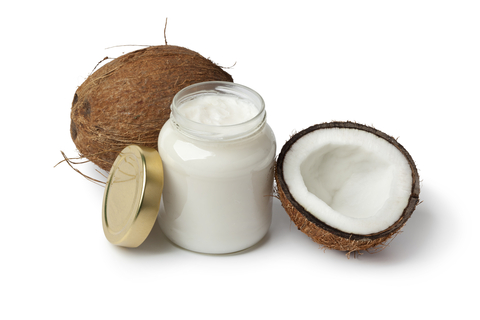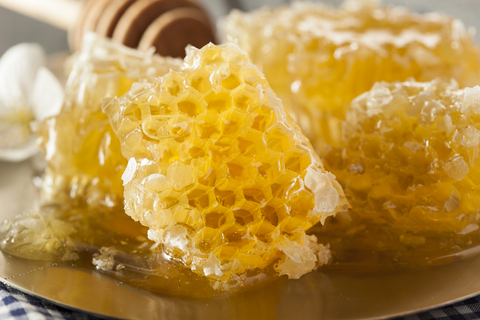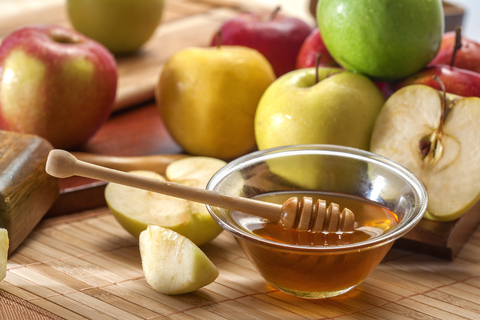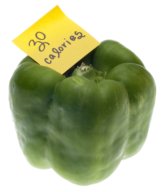
Why is it important to know calories in food?
Let’s explore what we really need to know about calories in food…
A calorie is the amount of energy it takes to raise the temperature of one gram of water one degree Celsius.
But knowing the science behind calories isn’t really helpful to the average dieter. So what is important?
It takes 3500 calories to equal one pound. Knowing this fact is crucial if weight loss (or weight gain) is your goal.
If you want to lose one pound each week, without changing your activity level, then you must decrease your daily calorie consumption by 500 each day. 500 calories X 7 days = 3500 calorie-deficit or one pound!
If you don’t want to deprive yourself that much, then you could decrease your food consumption by 250 calories a day and burn an extra 250 calories a day through additional activity.
It’s really simple math if you’re concerned with calories in food and weight loss.
How do you determine the number of calories in food?
Per one gram of food:
- Protein = 4 calories
- Carbohydrates = 4 calories
- Fats = 9 calories
Right away, it’s easy to see that fats have more than double the amount of calories as carbs and protein!
You can determine the number of grams in the amount you plan to eat by using a food scale or reading the nutrition fact label on the packaging.
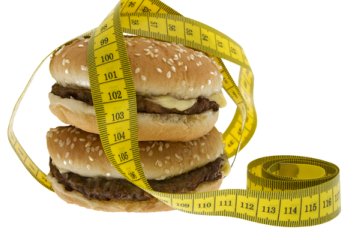
What is metabolism?
We all need calories to survive. The trick is to find a balance, between what we need and what we consume. Metabolism is the word we use for the burning of calories. Our metabolism depends on many things, including gender, age, height, weight, activity level, and genetics.
You can manipulate your metabolism, mainly through exercise, and to a lesser extent through the food that you eat. Activity not only increases your metabolism while you’re doing it, but it continues to function at a higher level for approximately two hours after you stop! To get this benefit, make sure you are working out at a level that leaves you huffing and puffing.
Discover how to burn maximum calories Discover foods that speed metabolism
What is Basal Metabolic Rate?
Most people don’t realize that 60%-80% of the calories we burn are used for basic bodily functions–things that we have no control over such as breathing, circulation, kidney function, and digestion. This is called your BMR or Basal Metabolic Rate. Sometimes you might hear it referred to as your RMR or Resting Metabolic Rate.
Your BMR decreases as you age, but you can actually increase it by increasing your lean muscle mass. This can be done through resistance training, where you work against your own body weight, through weight lifting, power yoga, bands, push-ups, etc.
What are empty calories?
Empty calories provide no nutritional benefit. This could include soft drinks, many sweets, white breads, white rice, alcohol, butter, margarine, and many high-fat foods.
If weight loss is your goal, then it’s important to make your calories count! A well-balanced diet is one that provides adequate nutrients within the calorie-constraints.
Technically, a calorie is a calorie. You can lose weight eating empty calories. Unfortunately, the consequences will show up in your hair, skin, energy level, and overall wellness.
What are negative calorie foods?
While learning about calories in food, you will most likely hear about negative-calorie foods. This is a controversial subject, as many experts believe they don’t exist. The theory is that some low-calorie foods require so much energy to chew and digest that you actually burn more calories than you consume.
For those that believe in this theory, negative-calorie foods include many fruits and vegetables, including: apples, blueberries, grapefruit, oranges, watermelon, cabbage, celery, broccoli, cauliflower, cucumbers, and spinach.
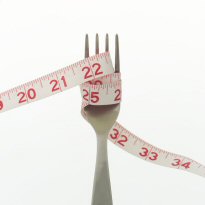
Decrease Your Daily Calories and Lose Weight:
- Eat three 400-calorie meals a day and two 100-200-calorie snacks. Never eating more than 400 calories at one time makes it much easier for your body to efficiently process the food.
- Drink plenty of water. Water not only gives a feeling of fullness, but it helps flush out your system.
- Eat only 1/2 of your meal when you go out to restaurants. Save money by sharing a meal or save the rest for another meal.
- Order an appetizer and a house salad instead of an entree.
- Beware of alcohol and make it a one-drink rule. You don’t want to waste your precious calories.
- Order one dessert for the entire group and share. Never eat more than 2 bites of empty calories.
- Try the 5-4-3-2-1 Diet, which limits the amount of food you eat.
- Order all dressings and sauces on the side and ask the waiter to keep the bread basket.
- Don’t “graze.” Eat with intention, fully engaged in the moment. Chew slowly and completely.
- Keep track of what you eat. This is really the only way to stay on top of it. You can use this free printable weight loss journal.
- Chew sugarless gum between meals, or rinse with something strong such as Listerine. Sometimes just having a flavor in your mouth makes all the difference.
- Don’t cut calories in food by skipping meals. This will affect your metabolism. Eat frequent small meals.
- Eat frozen meals. Yes, they’re processed, which has its own issues, but portion control is key!!
- Be active! Burning calories through exercise helps limit the number you need to reduce in food calories.
